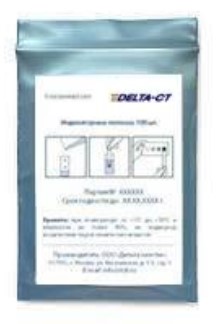Paraguay: Pork producers expect export surge

Given recent developments, pork sales are likely to increase even more from this year, given Taiwan's recent measures to eliminate taxes currently levied on Paraguayan products imported into the country. An "economic boom" is therefore expected for the pork industry and its producers, according to Enzo Mannarini, director of the Paraguayan Pork Producers Association (APPC).
Available data suggests that the livestock producer’s forecast is justified. According to the National Animal Health Service (Senacsa), foreign pork sales increased by 37.8% in invoiced value from January to May this year, due to a 42% increase in shipment volume. As a result, they earned $15.7 million , compared with $11.4 million in invoiced value for the first five months of 2024 , representing an increase of $4.3 million for domestic companies in the sector.
The main buyer of domestic pork this year was the Republic of China (Taiwan), which accounted for 80.9% of all exports in monetary terms. Other buyers of the remaining volumes were Uruguay, Brazil and Georgia.
Given that Taiwan is a key destination for this type of meat, the measure recently adopted by the government of that country to encourage domestic exports is of paramount importance. Currently, the tariff paid on Paraguayan products entering the aforementioned country is 12.5%. From July 5, it will be 0%, meaning no tariff will be paid. This tariff advantage will have a strong impact on purchases of Paraguayan products, as they will be cheaper, which will help increase purchases by Chinese consumers.
Given Taiwan’s new measures, Paraguayan pig farmers plan to export 15,000 tons of pork this year, up from 11,000 tons shipped in 2024, representing a 36% increase. China’s demand for the product is around 100,000 tons per year, so Paraguay could increase its shipments given the tariff advantage it will receive from July and its high pork production capacity. Competition with other supplier countries could be favorable given the removal of the tariff burden it previously had.
This fact will benefit production in the sector and the entire Paraguayan industry, which now faces a new challenge as it prepares for what is to come.
One of the regional leaders said that this innovation will allow many manufacturers to advance their existing projects. He emphasized that some participants in the production chain are already carrying out construction projects, while others are about to start.
The current situation represents a great opportunity for our country, as it will allow thousands of small pork producers to join the formal production system, further strengthening the development of the region and positioning the country as an exporter of this type of meat.
The President of the Chamber of the Pork Industry of Paraguay, Marta Mareco, welcomed the introduction of a zero tariff on this Paraguayan product and noted the government's work to achieve this goal.
The ROC's decision to reduce the tariff on Paraguayan pork to zero is a measure of great economic significance. But it is essentially a political decision taken by Taiwan in favor of Paraguay, one of the few countries in the world that maintains diplomatic relations with that country and with which it has had strong ties for decades. Therefore, herders, producers and people associated with pork production should take full advantage of the tariff measure.




























































